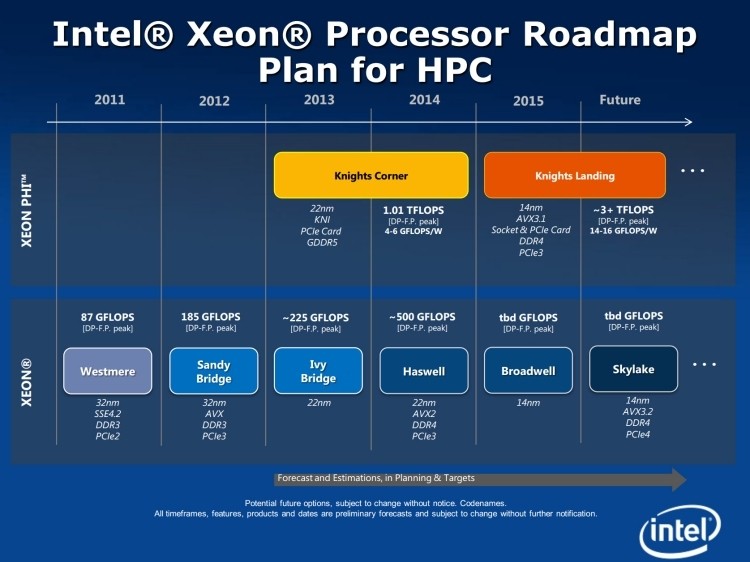A leaked Intel Xeon roadmap purportedly sheds some light on what the chip maker has in store for Skylake, the successor to the yet-to-be-released Broadwell platform. Chips aren’t slated to hit the market for a couple more years but when they do arrive, they’ll be carrying an array of new tech with them.
The 14-nanometer processor will be the first of its kind using that manufacturing process and will introduce Intel’s ninth generation Intel HD IGP. It’ll also be the first platform to support dual-channel DDR4 memory but not the first to deliver DDR4 in general as Haswell-E will support quad-channel DDR4 next year.

The new platform will additionally support PCIe 4.0 which is said to essentially double the bandwidth offered by the current generation PCIe 3.0 standard. This will likely be a welcomed addition as more powerful graphics cards from AMD and Nvidia could use the extra bandwidth.
If that weren’t enough to get you interested, perhaps SATA Express support might do the trick. This standard will boost maximum bandwidth to around 16GB/s which is more than 2.5 times as much as the existing standard allows for. Hopefully solid state drives will evolve enough to actually make use of the extra bandwidth.
The slide doesn’t give an exact date as to when Skylake will be ready for prime time but we’re hearing that Intel will likely launch the new platform sometime in late 2015 or beyond. It looks like I’ll be holding off on upgrading my main system until then.